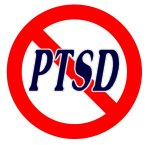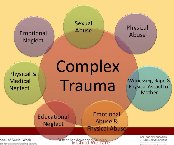Other TA Terms
OK Corral Script Drivers Strokes Injunctions Ego State Diagram
What is Transactional Analysis?
Transactional Analysis is a therapy modality used to create growth and change. The late Eric Berne developed the concepts and tools of Transactional Analysis (TA) and introduced them to the public in his book “Games People Play.” Berne referred to TA as social psychiatry, meaning a form of therapy or counseling used by every day people. The concepts of TA are simple, straight forward, easy to use and understand, user-friendly, and not full of medical terminology or psycho-babble. The tools and understanding provided by TA can create positive change to people, relationships, and the work environment (QWL or quality of work life) when applied.
The name of the modality really describes at the simplest level what TA is, the analysis of a transaction. Of course, to understand the concept fully, you need to know that a transaction is a communication between two or more people . TA is a theory of communications and interpersonal interaction. Sometimes the communications between two people have a hidden message, meaning and agenda. The result of this hidden message is a game. People use games to get a need met, without asking directly for what we need or want. We learned how to play these games to get our needs met as children, and they worked then. Now, as adults, they are the source of problems in our every-day relationships with ourselves and those around us.
TA is also a theory on personality and psychological structure. The concept of the PARENT, ADULT, and CHILD ego states (see figure below) also originated in TA. These ideas help us to understand, explain and change our behavior and have better relationships with others. Through these ideas, we begin to understand ourselves and how we operate, as well as others.
Below is a sampling of other pertinent terms used in TA. There are more and I believe these will give you, the reader, the best idea and information of what TA is about.
Basic Life Position & The OK Corral
The life position is an attitude about self and the world around self. The position determines how the child writes their script. There are four possible choices: 1. I’m OK, You’re OK (abbreviated I+U+), 2. I’m OK, You’re Not OK (I+U-), 3. I’m not OK, You’re OK (I-U+), 4. I’m not OK and You’re not OK (I-U-). Visually expressed, these concepts look like a chart with four quadrants, thus the term Corral.
Script:
Injunctions:
Injunctions are messages we received that usually begin with the word “Don’t” and are instructions on how to behave. For example, “Don’t be you” is an injunction that says don’t be who you really are, be someone or something else.
Drivers:
Think of Drivers as messages or instructions, programming, we feel compelled to follow. For example, the command “Be Perfect” causes one to be a perfectionist.
Strokes:
A stroke is a unit or statement of recognition. Some strokes are positive, some are negative. Other strokes are physical and/or psychological. Another type of stroke has conditions attached to them where others don’t. We all have the need or hunger for recognition and stimulation by strokes. The best psychological stroke is a positive, unconditional stroke. Physical strokes take the form of hugs, caresses, massage, etc.
This is only a sampling of some of the major TA concepts. A good TA practitioner will be able to listen for all of this information (and more) and help the client to grow, change and improve their life and relationships.











